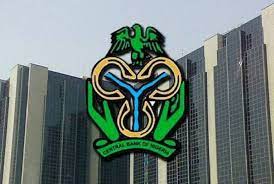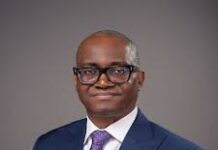.Urge apex bank to be focused
Experts in the nation’s financial services sector have commended the Central Bank of Nigeria (CBN) for its plan to further recapitalise Nigerian banks.
Speaking with Daily Champion, they maintained that the CBN’s decision to increase the capital base of banks is a welcome development, geared towards a better economy.
The CBN governor, Mr Olayemi Cardoso, weekend in Lagos at the 58th Annual Bankers’ Dinner organised by the Chartered Institute of Bankers of Nigeria (CIBN) said the apex bank was planning fresh recapitalisation for the commercial banks.
In his reaction, former President of CIBN, Mazi Okechukwu Unegbu who described the decision as a welcome development urged the CBN to be focused in this recapitalization process.
Unegbu, who is presently the Managing Director/ Chief Executive, Maxifund Investment Securities Plc said there is the need for the CBN to give the banks a little time for them to put themselves together.
“This is a good development because most of the banks are not strong presently and the CBN have observed it. I commend this observation,” he said.
According to him, the present CBN governor will do a good job, only if the politicians will allow him.
Similarly, former President, Association of National Accountants of Nigeria (ANAN), Dr Samuel Nzekwe Nzekwe said that Nigerian banks needed to recapitalise because the country ‘s currency had been devalued due to the rising inflation rate in the country.
He said, inflation is so high that what they have in the system might not be enough to back up any financial obligations that may come.
“There is the need for banks to recapitalise so that they can continue to exist. In addition, they need to recapitalise a little bit so that they can be in strong fittings in case of any eventuality and problems,” he said.
Dr, Nzekwe however, emphasised the need for banks to raise their capital base further to meet the challenges of the current time.
He said that Nigerian banks needed to recapitalise because the country ‘s currency had been devalued due to the rising inflation rate in the country.
Speaking further, he stated that Nigerian banks need to recapitalise so as to be in strong fittings in case of any eventuality and problems.
Also , Former Director, Research Department of CBN, Dr Titus Okunronmu, said that the CBN’s planned recapitalisation of banks was a step in the right direction.
Okunronmu said it would put the banks in a better position to grant credit to the public.
He added that this would also help them to face future’s challenges.
The last time CBN directed banks to recapitalise was in 2004, when Charles Soludo, former CBN Governor, raised their capital base from N2 billion to N25 billion. He is the incumbent Governor of Anambra State.
AfDB urges govts to own, sustain its macroeconomic models
The African Development Bank (AfDB), on Sunday urged Africa governments to own and ensure the sustainability of their macroeconomic policy models.
The Division Manager of the Macroeconomic Policy, Sustainability, and Forecasting Division of the research department of AfDB, Anthony Simpasa, gave this advise in an interview with the News Agency of Nigeria (NAN) in Abuja.
Simpasa said this while speaking on AfDB’s recently inaugurated 2023 Benchmark Macroeconomic Models for Effective Policy Management in Africa.
He said the essence of the report was to take stock of the modelling experiences across different countries, what the models do, and how effective they were in forming policy decisions and implementations.
”It helps countries channel their resources to areas with more need, especially in poverty reduction, investment decisions, and public investment.
”It is also crucial in allowing us to highlight the significance of macroeconomic modelling in Africa, and that is what this report is all about,” he said.
Simpasa said that one key takeaway was many countries now realised the importance of modelling for their economies, informing policy decisions, and allocating resources from the budget.
”Generally, we have noticed that some countries have also built in-country capacity to develop these models, use them, and customise them to the needs of their specific economy.
”However, there are significant capacity gaps in technical competencies and a need for ownership in many cases.
”This is because of the attrition of staff, either the minister of finance, minister of planning, the CBN, you will find that there needs to be sustainability in the idea of this model.
”These models must consider the distribution in terms of population size and how this will inform medium and long-term forecasting of our economies based on the availability of human capital,” he said.
Simpasa said the bank’s duty was to continually support countries in identifying their gaps and providing the necessary support.
He said ”ultimately, the countries themselves will have to own these models, and this is where the political will comes in.
”And we are encouraging our client countries that our support is financial, but they must continue to build internal capacity themselves.
”And for those exiting, they need to pass on the expertise, the training they have gathered to those that are coming in. This is the only way we are going to sustain the use of these models.”(NAN)





















